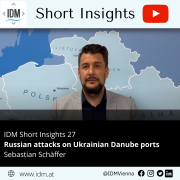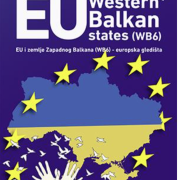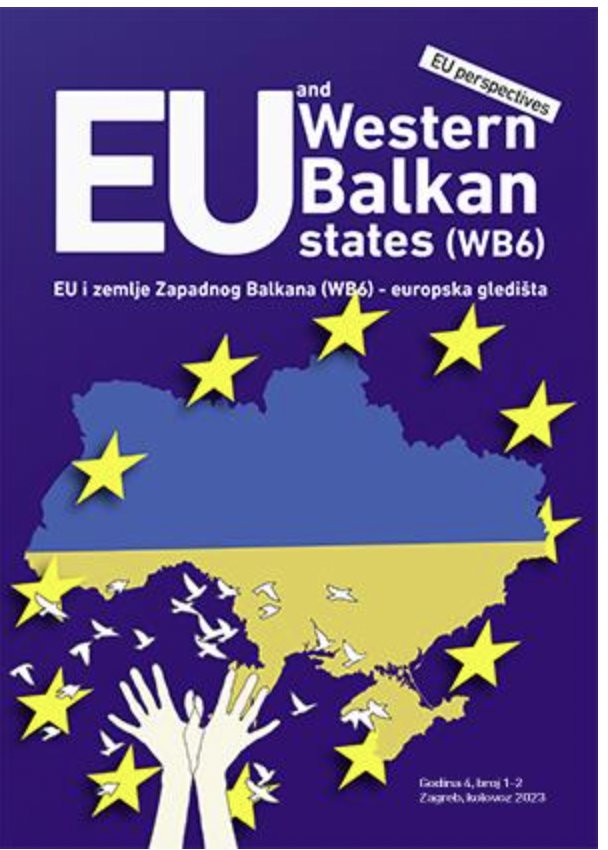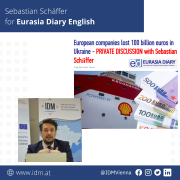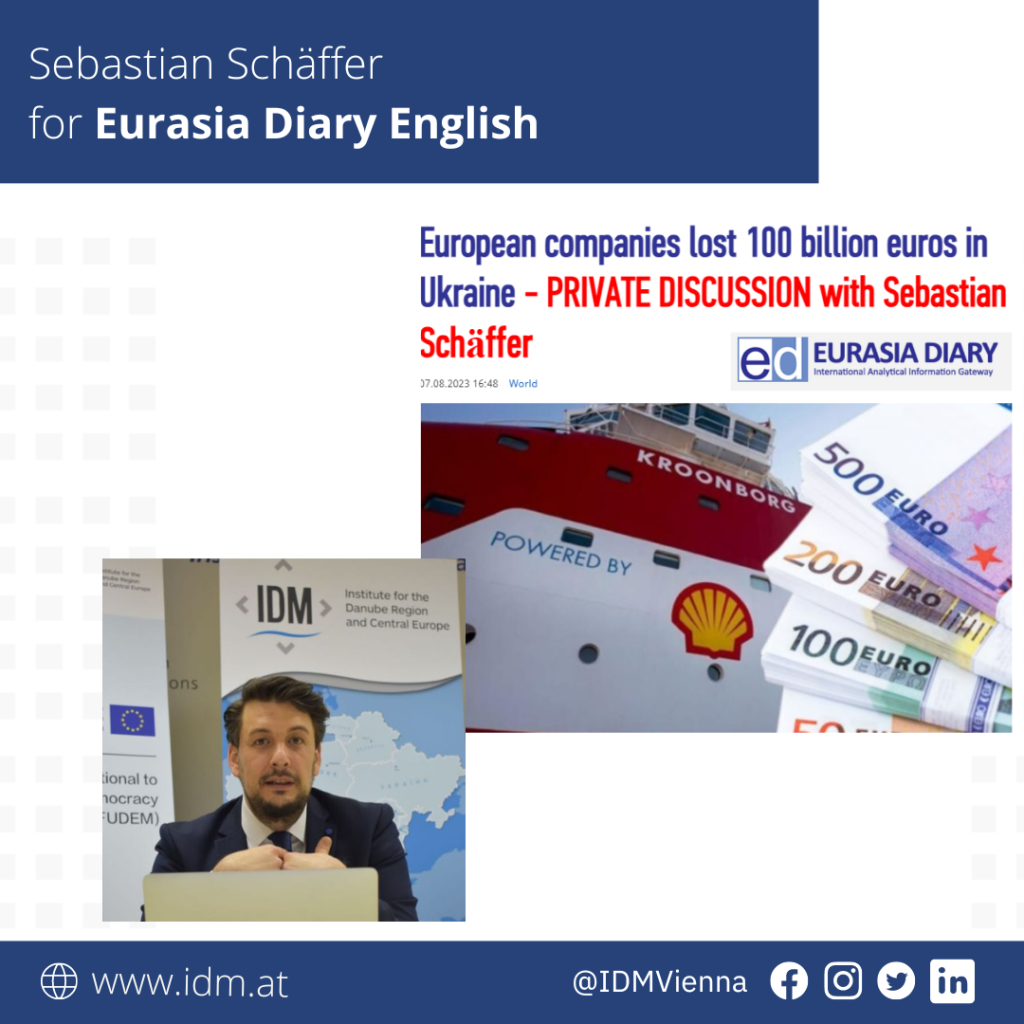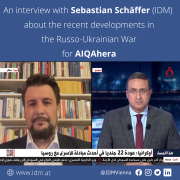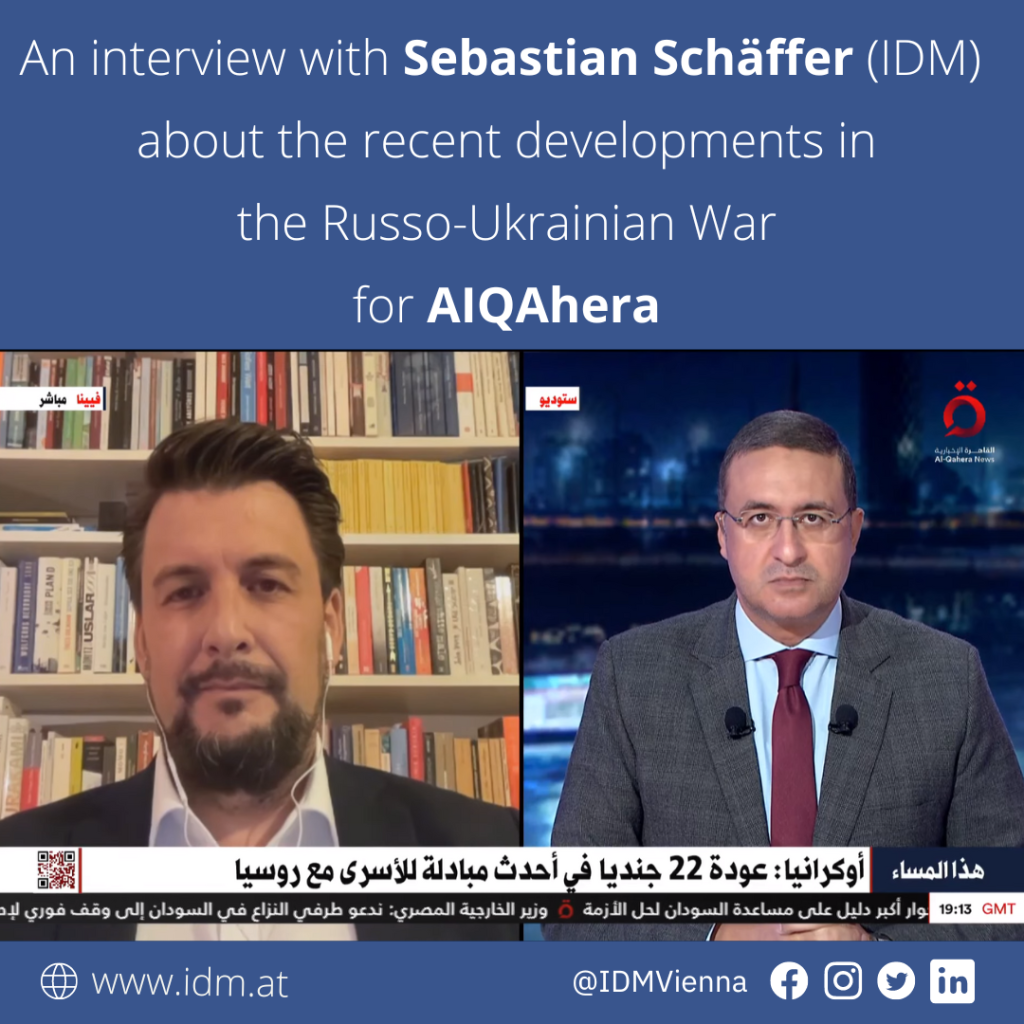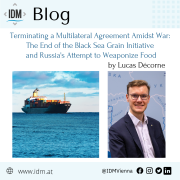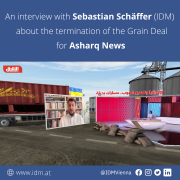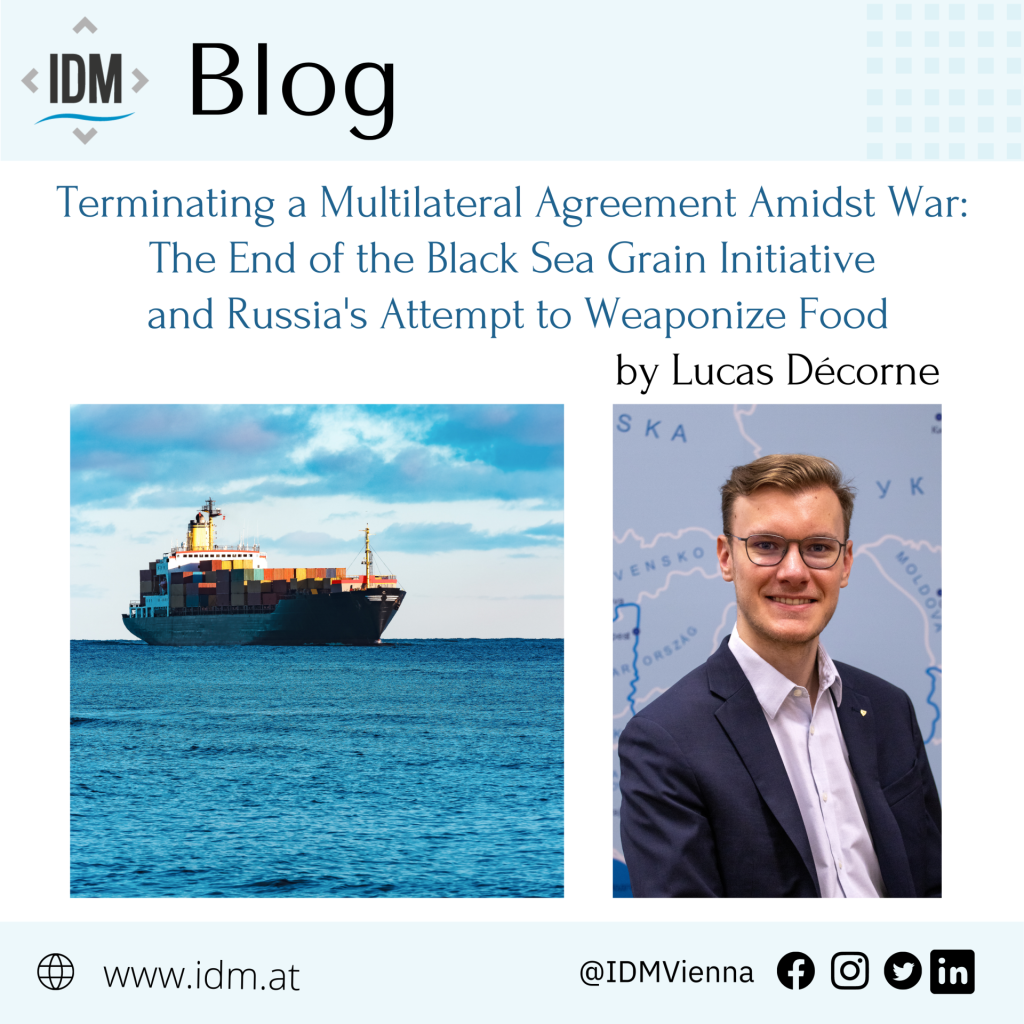
In the latest article on the IDM blog, our trainee Lucas Décorne explores the weaponization of agricultural goods in the context of the Russian invasion of Ukraine and examines how the tensions surrounding the Black Sea Grain Initiative could impact global food security.
Food (In)security in Times of War
The Russian full-scale invasion of Ukraine has deteriorated food security worldwide. The destruction and disruption of food systems during armed conflicts result in strongly adverse and irreversible short- and long-term effects which may alter the lives of future generations. Besides the lack of food availability, the global agricultural markets have observed an unprecedented rising in food prices, affecting both developed and developing countries. Developing countries suffer the worst effects of the global food crisis because of their significant reliance on exports from Ukraine transported on the Black Sea. Hence, the need for an agreement, in this case multilateral, to safeguard the world’s food security while reducing the time of humanitarian assistance to those in crucial need.
A Required Multilateral Achievement
In February 2022, the Russian invasion of Ukraine halted maritime grain shipments from Ukraine completely, whilst Russia and Ukraine accounted for one-third of global wheat trade, 17% of global maize trade and almost 75% of global sunflower oil trade before the war. Grain could not be exported in required quantities using alternative routes through Poland or Romania because the Danube River and railway infrastructures do not have the capacity to meet global demand. Therefore, Ukraine and Russia signed an agreement with Turkey and the UN in order to allow grain exports from three key Ukrainian ports (Odesa, Chornomorsk, Yuzhny/Pivdennyi) on 22 July 2022. In April 2022, Turkey hosted the discussions since the nation controls the Black Sea maritime routes where the cargo ships would navigate through. The full name of the agreement is the Initiative on the Safe Transportation of Grain and Foodstuffs from Ukraine Ports, but it is commonly referred to as the Black Sea Grain Initiative.
The Initiative allowed procedures to safely export commercial food and fertilizer for 120 days. Ukrainian vessels would guide cargo ships into international waters of the Black Sea to avoid mined areas. Then, cargos went on towards Istanbul along an agreed maritime humanitarian corridor where, when reaching Istanbul, they were inspected by a joint coordination and inspection centre, composed of Russian, Turkish, Ukrainian and UN inspectors. António Guterres, UN Secretary-General, said this agreement and the resumption of Ukrainian grain exports amidst the ongoing war is “a beacon of hope” in a world that desperately needs it. Additionally, another deal was signed to reduce the impact of sanctions on the export of Russian food and fertilizer. Both deals were subject to four- and then two-monthly reviews.
The Initiative’s Influence on Food Security
For almost a year, the Black Sea Grain Initiative (BSGI) has allowed nearly 33 million tons of foodstuffs to leave Ukrainian ports safely, driving down global food prices. Among these exported grains, less than a ton of wheat was bought and shipped to countries facing critical famine situations, such as Afghanistan, Ethiopia and Yemen, by the World Food Programme. Although wealthy countries acquired most supplies, it has lowered the overall price paid by all countries.
Despite difficulties in the renewal of the Initiative, it was eventually renewed for another 120 days by all parties in November 2022 and later in March and May 2023 for a 60-day extension. The Russian Federation was reluctant to extend the agreement for a longer term as it considers it a losing proposition, although it benefited from the agreement since its exports were higher than last year, in addition to an increase in production of almost 17 million tons. Russian officials often expressed that they would not lengthen the deal because, according to them, the second part of the deal, about fertilizers, did not comply with the initial agreement. Not only that, but they complained that sanctions on Russian goods exports had not been lifted and called for those on the main agricultural bank to be lifted. As a result, Russia was unable to offer insurers the required legal assurance necessary to safeguard Russian food-carrying vessels. Therefore, Russia started to dwindle inspections month after month, slowly decreasing food exports. The Initiative witnessed a 66% decrease in May 2023 compared to March 2023, eventually, Russia terminated the Black Sea Grain Initiative.
The Other Part of the Initiative
Fertilizer exports, including ammonia, are decisive for food security and agricultural production. Even though they were included in the Initiative, they weren’t exported. Before the invasion of Ukraine, Russia used to be a major ammonia exporter, with 4,4 million tons a year. One of the main pipelines, from Togliatti in Russia to the Ukrainian port of Yuzhny/Pivdennyi, was developed to export 2,5 million tons annually, but it has been damaged on 5 June 2023 – the current status is unknown. Russia expects the resumption of the Togliatti-Odesa ammonia pipeline, as one of its demands for a return to the agreement.
Before the conflict, Ukraine was a leading grain exporter on the global market. Its production was essential for supplying markets and keeping prices down. A lack of food supplies has unprecedented effects on the world’s food security and can impair the lives of millions of people, especially the poorest. The Black Sea Grain Initiative has facilitated the partial restoration of vital food supplies in the market. While the Initiative was recently terminated by the Russian Federation, the world may be facing another food crisis with spiking prices. Another maritime blockade of Ukrainian grain would have extensive implications beyond Europe and prove disastrous for those facing dire circumstances.
Despite negotiating one of the few diplomatic achievements since the war began and trying to keep the Initiative running, Russia is aware of the political influence its agricultural exports offer and the leverage it has to meet its demands. It has continually blamed Western sanctions for the ongoing global food crisis while it weaponizes food to tilt the war to its side.
Termination of the Initiative & The Future of Food Security
The question remains whether Russia would be willing to join again the agreement or not. Putin implied he is prepared to renege on the deal if his demands are met. However, the recent bombings on the port of Odesa as well as other civilian infrastructure and also harbours at the Danube, where some 60,000 tons of grain have already been destroyed, seem to suggest the opposite. Grain prices have already risen on the global market before Russia terminated the grain deal, due to a slowing down of checked vessels to be cleared for export.
Following the initiative’s termination, certain EU countries bordering Ukraine express concern over the potential for alternative routes. This apprehension stems from the likelihood of increased exports to these nations, potentially hampering their capacity to stock the anticipated surplus of harvests expected this year. If excess quantities of grain reach their domestic markets, then, prices will fall, undermining their farmers. The ministers of Agriculture from Bulgaria, Hungary, Poland, Romania, and Slovakia have therefore called for a prolongation of the preventive measures on imports of wheat, maize, rapeseed and sunflower seeds originating in Ukraine until the end of 2023.
The recent interview of Sebastian Schäffer, IDM Director, for Asharq News, discusses the challenges and alternative routes for the future of grain exports amidst this war.
Lucas Décorne – a student in the Master’s program in Intercultural Relations and International Cooperation at the University of Lille (France) and currently a trainee at the IDM (April to August 2023). He holds a BA degree in Foreign Languages Applied to Business from the same university.









